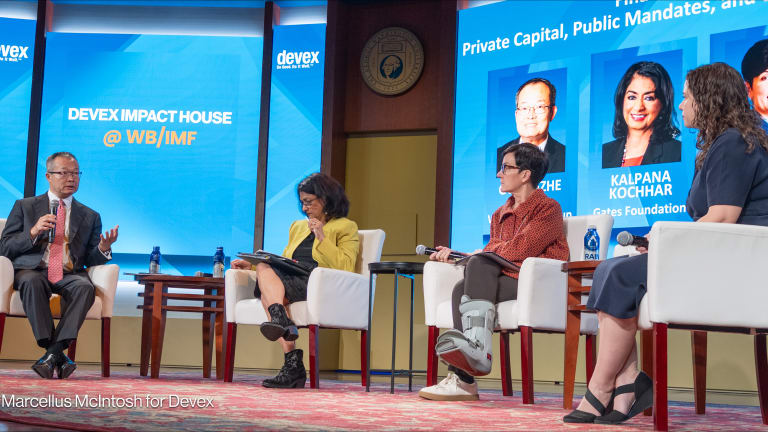At last week’s World Bank-International Monetary Fund annual meetings, a recurring theme was clear: The international financial system is hindering low- and middle-income countries from pursuing the green economy.
Avinash Persaud, a key architect of the Bridgetown Initiative and special adviser on climate change to the president of the Inter-American Development Bank, argues that the problem is rooted in our tendency to divide climate and development into separate areas. “You can’t really divide development into these different silos of climate or nature or jobs,” he said during a session at the Devex Impact House. “When you’re trying to do development, you have to be conscious about climate shocks.”
For many vulnerable nations, these shocks are existential, but the solutions are not paying attention to the need for resilience moving forward.
This story is forDevex Promembers
Unlock this story now with a 15-day free trial of Devex Pro.
With a Devex Pro subscription you'll get access to deeper analysis and exclusive insights from our reporters and analysts.
Start my free trialRequest a group subscription







